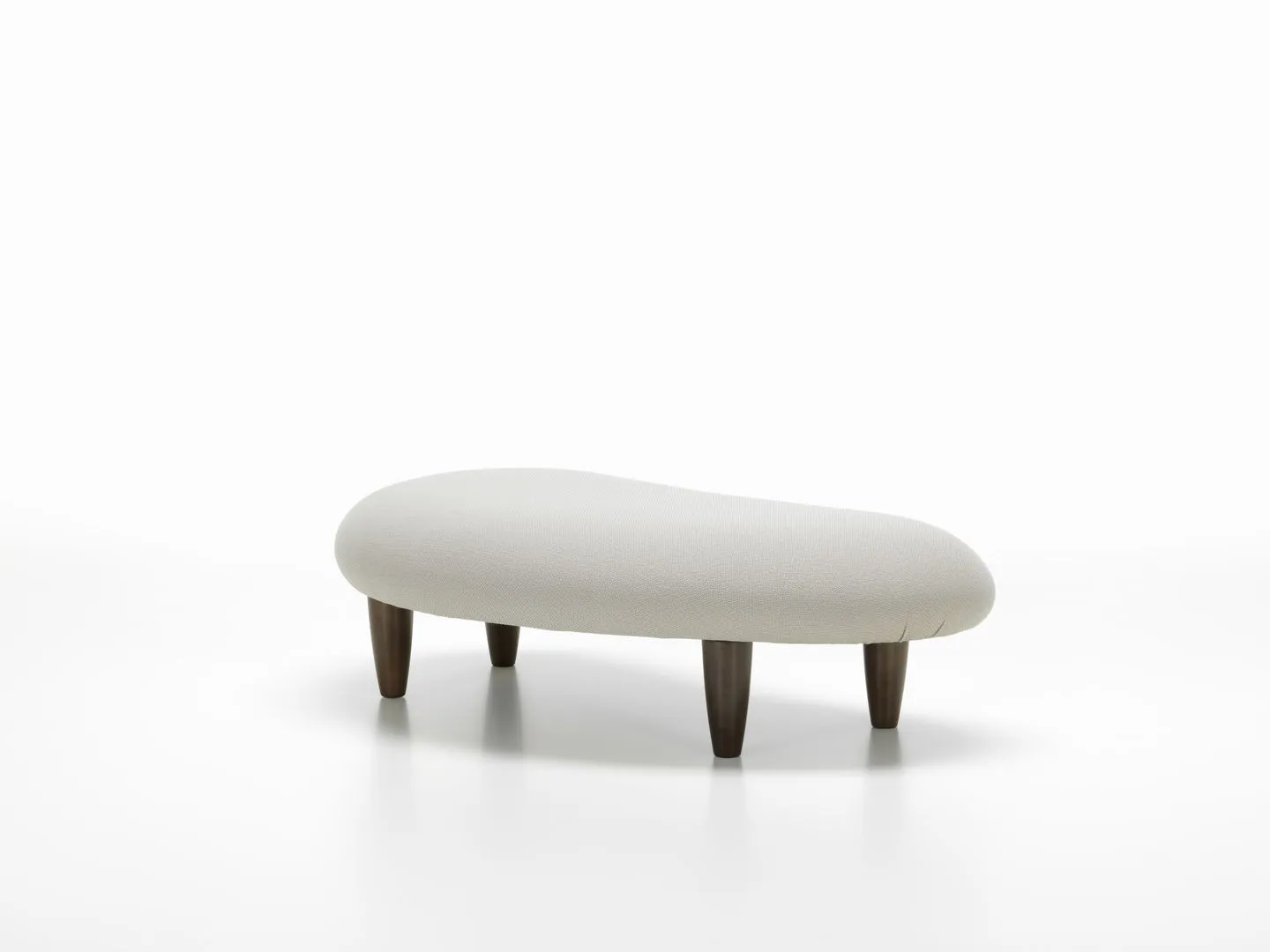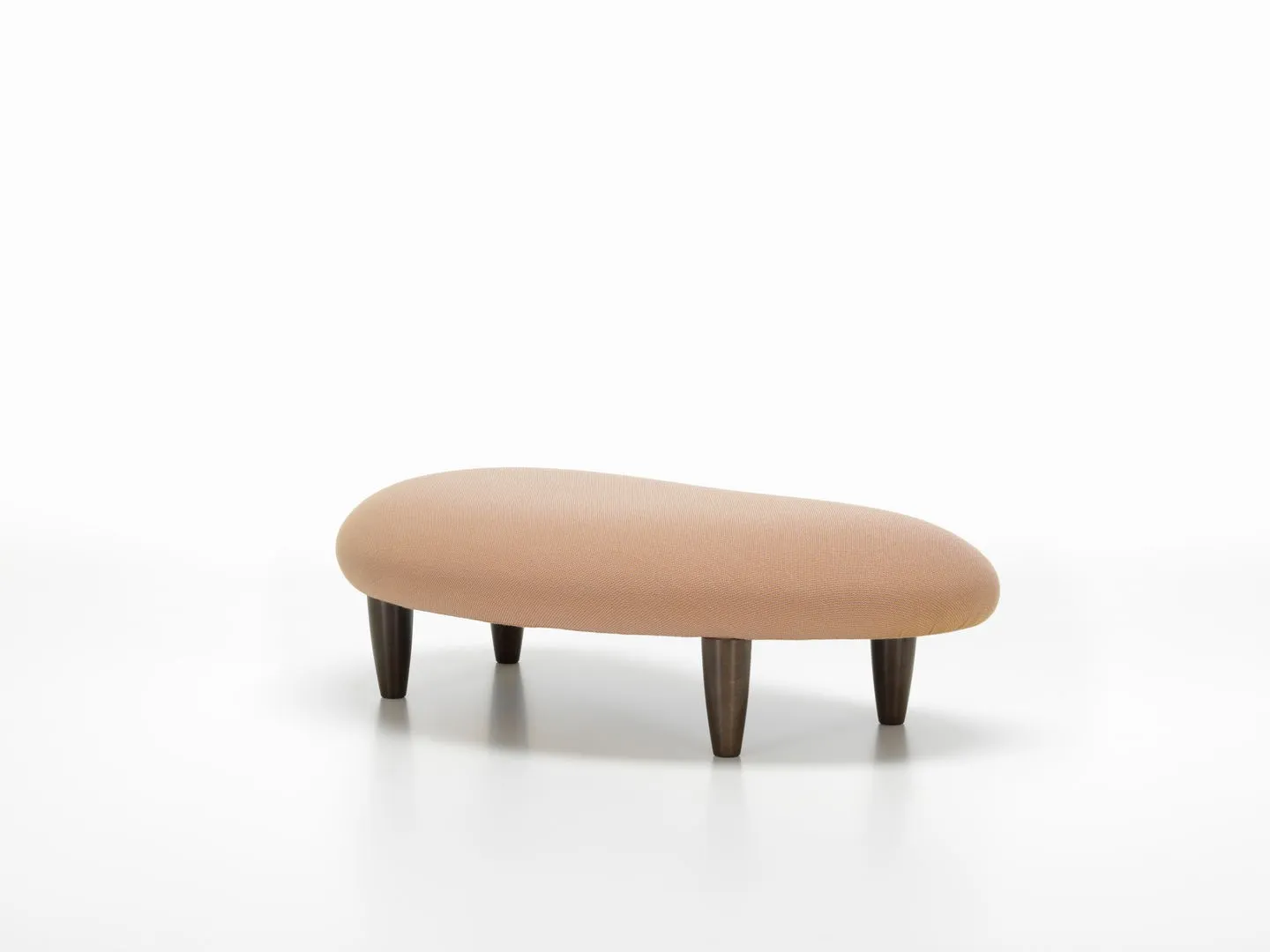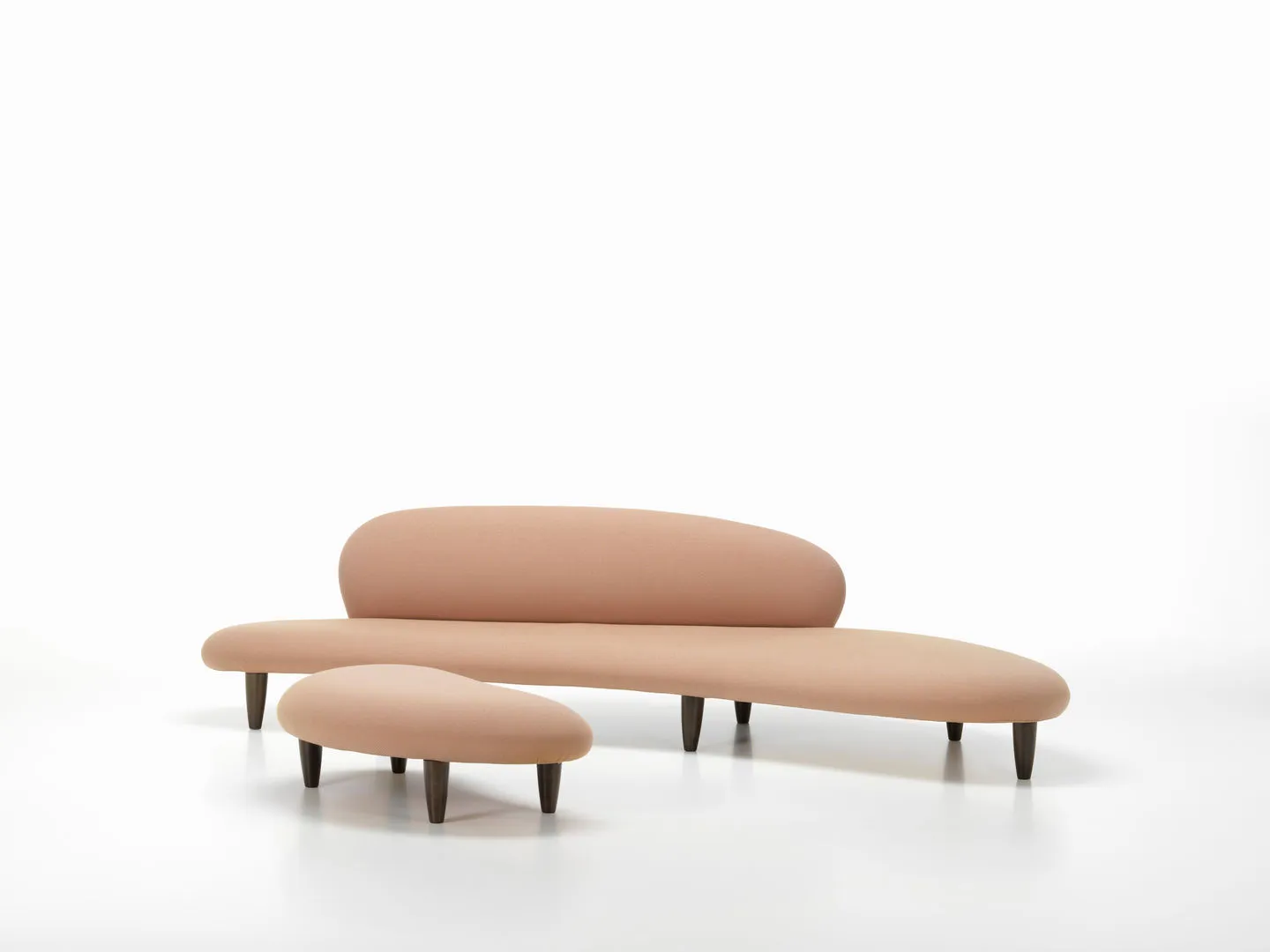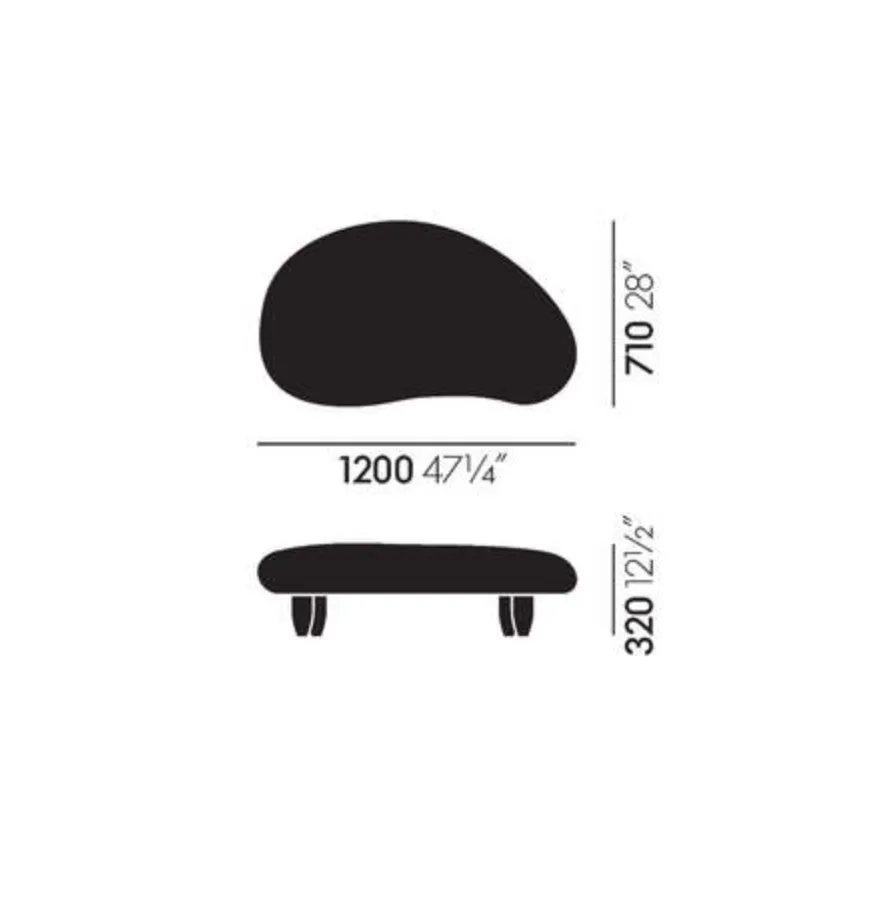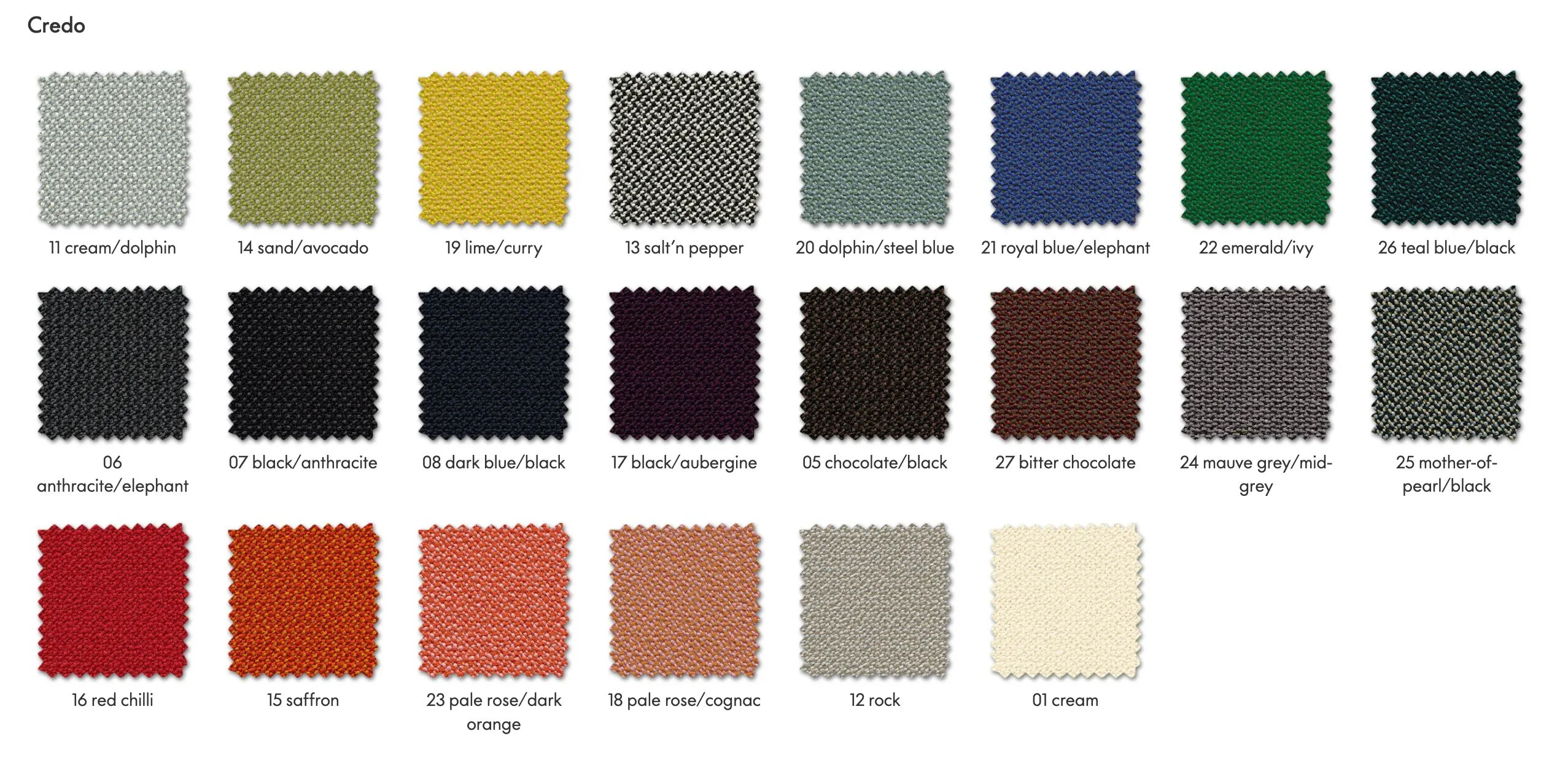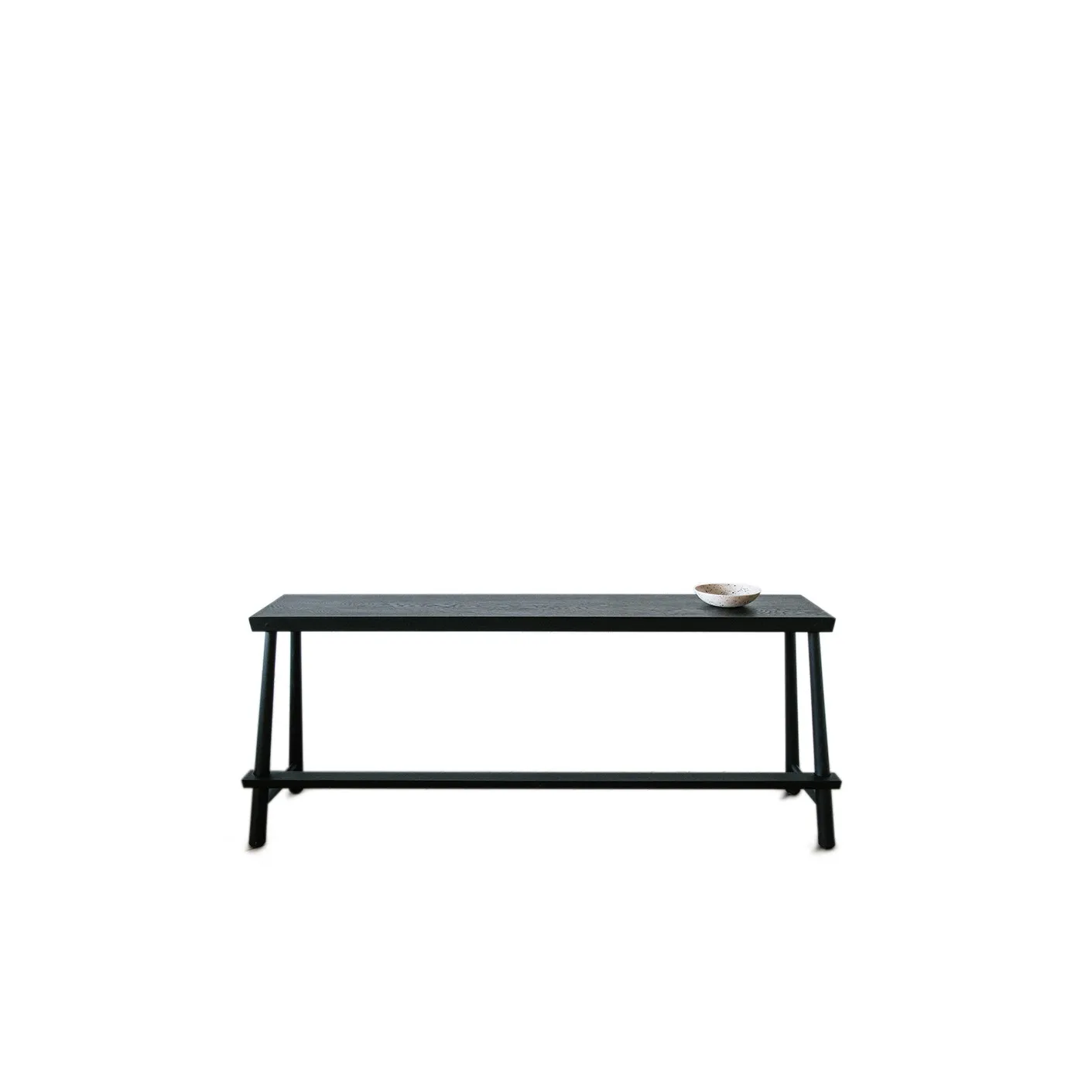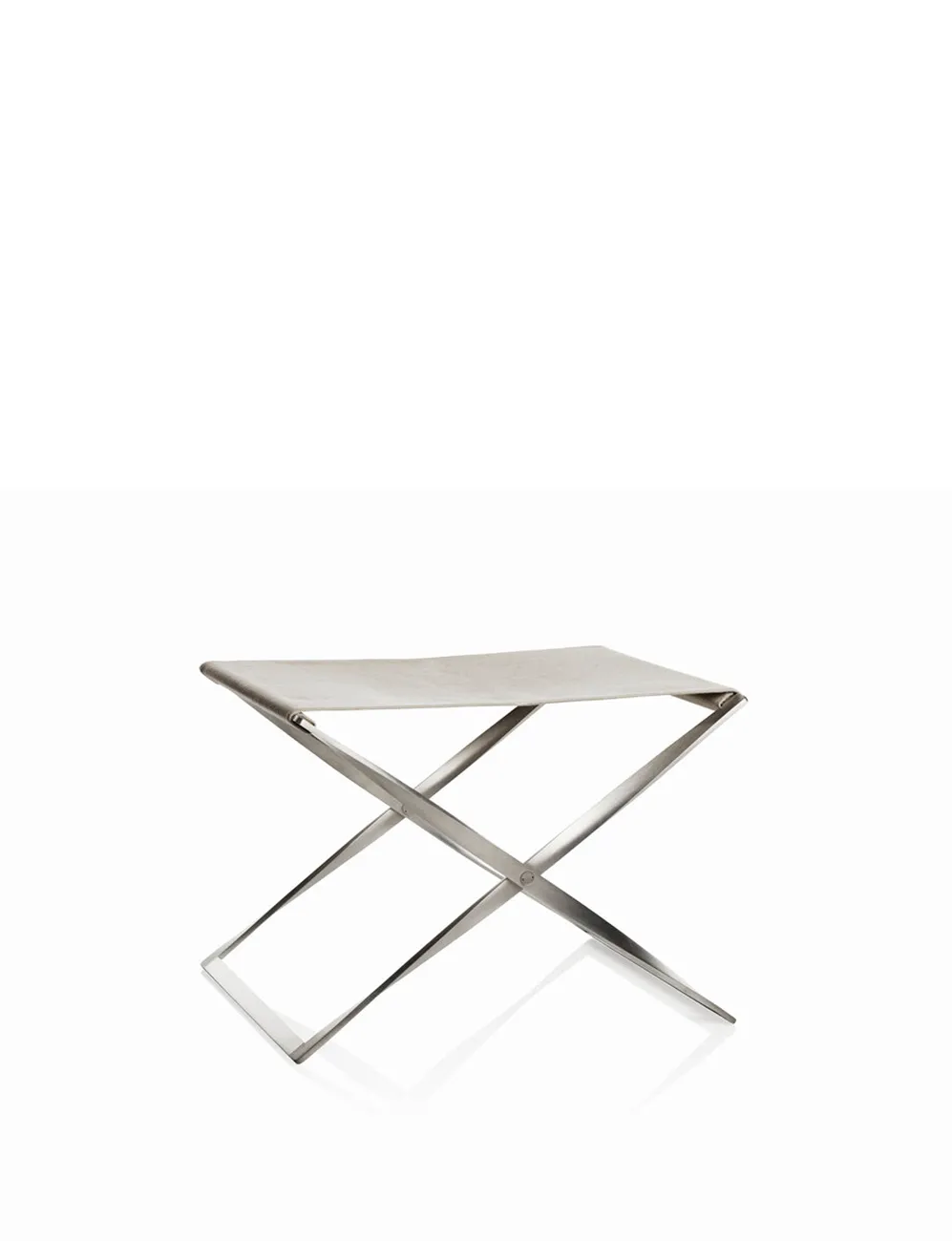Freeform Ottoman
The sculptural quality of Noguchi's design vocabulary finds expression in the Freeform Ottoman: it is entirely different from other designs of the same period, appearing in combination with the Sofa like an enlarged sculpture of flat, rounded river stones. The slender organic forms are fluid and graceful. Noguchi emphasizes the lightness of the elements with thin yet comfortable upholstery and a choice of cover fabrics in natural colors.
The Freeform Sofa and companion Ottoman were produced around 1950 in limited numbers. Today, the few remaining pieces achieve record prices at auction. The designs have been manufactured in an authentic re-edition since 2002. The Freeform pieces are not merely suitable for use in living spaces but also in lobbies, hotels, and shops.
As a companion piece, the Freeform Ottoman can be freely positioned around the sofa, allowing users to enhance the latter's comfort. Or it can stand alone as an organic-shaped complement in any seating arrangement.
47.25" L x 28" D x 12.5" H
Frame: solid beech.
Body and cushions: wooden frame with polyurethane foam.
Upholstery: Fabric only, Vitra Credo. Inquire for additional details.
Legs: solid maple in natural finish or walnut stain
Ottoman and Sofa Available, in separate listings.
Isamu Noguchi

Isamu Noguchi is revered as a universal talent with a creative oeuvre that went beyond sculpture to encompass stage sets, furniture, lighting and interiors, as well as outdoor plazas and gardens. His sculptural style is indebted to a vocabulary of organic forms and exerted a sustained influence on 1950s design.
'My Father, Yone Noguchi is Japanese and has long been known as an interpreter of the East and West, through poetry. I wish to do the same thing through sculpture.'
-Isamu Noguchi wrote this in his proposal for a Guggenheim Fellowship.
Vitra

Vitra, founded in 1950 by Willi and Erika Fehlbaum in Basel, Switzerland, initially specialized in shopfitting. Inspired by the German word 'Vitrine,' meaning display case, Vitra evolved into a global design powerhouse.
In 1956, Vitra began licensed production of iconic designs by Charles and Ray Eames, expanding to Weil am Rhein, Germany, where the renowned Vitra Campus now stands. This architectural marvel houses the Vitra Design Museum and VitraHaus, honoring the Eames legacy.
Today, as a third-generation family business, Vitra blends environmental, cultural, and commercial missions, shaping innovative design solutions that redefine living and working spaces worldwide. Their commitment to sustainability is evident in every aspect of production, reflecting a continuous drive for progress and excellence.
